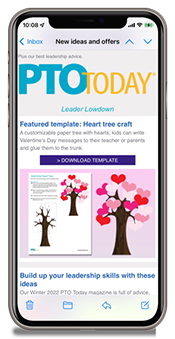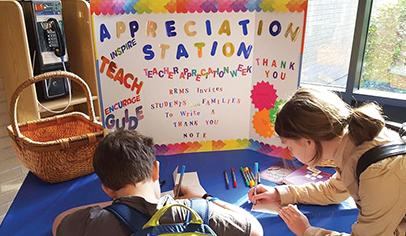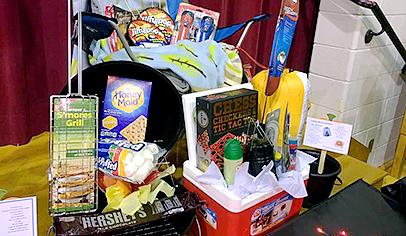Good record-keeping is an important part of maintaining a parent group, both month to month and year to year. As new leaders join your PTO or PTA, it’s extremely helpful for them to be able to look back at what the group did in past years. Keeping good records and making sure those records are passed on to new leaders helps your group build on past success. The alternative is that each new board must start from scratch because they don’t have the benefit of knowing what has been done in the past.
It helps to have a central storage spot for records, whether you keep digital or paper copies. One of the thorniest problems new officers come across can be obtaining old records that are stored at the house of a previous officer. Make it a policy to copy meeting minutes, for example, onto a central server. It might be a specific spot on the school server or an Internet cloud service like Dropbox or Google Drive. If you keep paper records, place printouts in sturdy binders and store them in the PTO storage area at the school (if one exists).
So what records should your group keep, and how long should you keep them? The IRS has set record-keeping rules for groups that have 501(c)(3) tax-exempt status; these rules pertain to important documents such as annual IRS returns, incorporation papers, and meeting minutes. As far as financial information, the IRS expects organizations to be able to document receipts and expenditures. For most PTOs, the checkbook can be the primary source of information, but it’s important to keep receipts and other supporting information. Using a digital system like PTO Today’s Finance Manager or Quickbooks makes record-keeping easy and fairly automatic. PTAs should review their state-level bylaws before taking any action. The following recommendations come from tax experts and IRS rules.
Meeting minutes and agendas: The IRS considers meeting minutes to be part of the permanent record of your organization. Keep a digital copy of the minutes for each meeting. A good format is to name each file with the name of the organization and date, then store them in a separate folder for each school year, e.g., “Franklin PTO minutes 090719” for your Sept. 7, 2019 meeting. It can be helpful to store agendas in the same way, although that’s not required.
PTO Minutes Approval Process
Bank statements: Every organization should conduct an annual review of the books to catch mistakes and inconsistencies and to start the new fiscal year with a clean slate. To do this, you’ll need to retain the year’s bank statements (or get copies from the bank). Best practice is to save bank statements for seven years.
Receipts and reimbursement forms: There are many expenses throughout the year—DJs, bounce house rentals, ice cream, pizzas. Save receipts for your year-end financial review. Use a standard reimbursement form to track expenditures where you aren’t paying for items directly. When writing a check, make sure a description of the expense is clearly entered in the memo field.
Check register: It’s important to keep a record of the checks you write. That could be an old-fashioned written check register, or it could be part of your digital financial management software. Either way, this is important information for your end-of-year financial review. Best practice is to keep this record for seven years.
Monthly treasurer reports: Monthly treasurer reports should be stored for three years. These documents keep a running tab on annual anticipated spending as well as spending to date while also outlining monthly income and expenses. It is important to remember that while your parent group might be mostly dormant during the summer, financial activity often takes place during this time and should be duly recorded.
Year-end treasurer reports: You should permanently save year-end treasurer reports, which provide an overview of the budget and expenses for the year comparing forecasted against actual.
IRS Form 990, 990-EZ, or 990-N: Tax-exempt organizations must file an annual return with the IRS, and these, too, need to be stored for seven years. The specific form you use depends on the gross receipts and total assets of the group. Organizations with gross receipts of $50,000 or less are eligible to file Form 990-N. Form 990-EZ covers groups with revenue up to $200,000. Most PTOs will file Form 990-N, which is a simple postcard and fairly straightforward. If you need help, a parent who is a tax preparer might be willing to lend a hand. Incorporation and tax-exemption paperwork: IRS Form 1023 or 1023-EZ, your IRS determination letter for 501(c)(3) tax-exempt status, your bylaws, and all paperwork related to parent group incorporation must be stored safely and permanently.
Originally posted in 2017 and updated regularly.
























